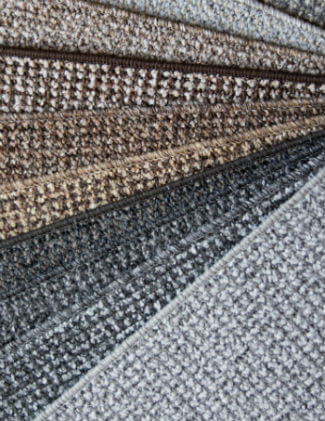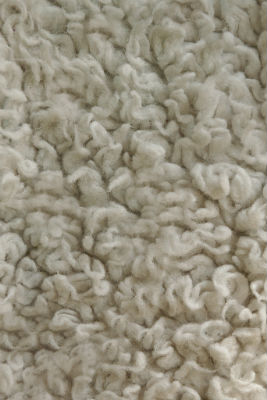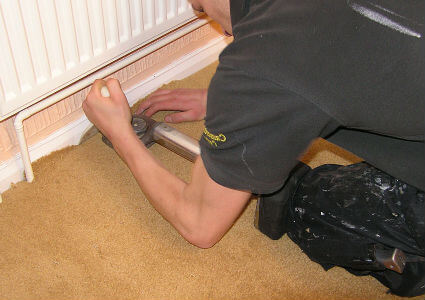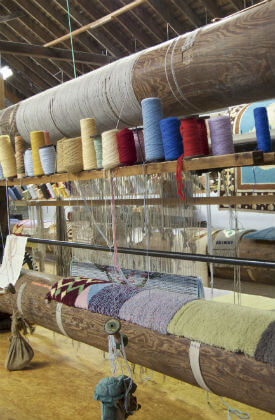There are a variety of carpet warranty types.
This leads to a lot of confusion—which leads to angry carpet buyers. Let’s help to remedy some of that now.
Our main goals here:
- Help carpet shoppers make more informed buying decisions.
- Help carpet owners keep their warranties active.
Shopper or owner, we’ll assume this is your introduction to the different types of carpet warranties.
Let’s start with:
Why Are There So Many Types of Carpet Warranties?
The truth:
Marketing.
The first warranties were used by nylon carpet companies to set their products apart. At the time, most carpets were wool. Bald spots could develop in wool after only a few years. Nylon held up longer. It was a smart way to set themselves apart.
Today, carpet manufacturers use warranties in much the same way.
Yet the waters have gotten murkier.
There are more warranty types than ever before. What’s more, different companies may be responsible for different parts of your warranty.
Manufacturers are generally responsible for the carpet staying together. Some may pass responsibility for the actual fibers onto their origin (probably a yarn company). The same goes for stain resistance guarantees.
Then installation and maintenance play a huge role in the claims process.
Cut through the marketing jargon. Understand how your specific warranty works. Then, make sure your carpets remain eligible. Finish this post until the end and you’ll be a lot closer to making that happen.
7 Types of Warranties (& Counting)
Again, warranties are powerful marketing leverage.
So you’ll probably see these types packaged up under some snazzy name like the “5 Diamond Turbo IronClad Triple 10 Year Promise”. Cut through the marketing adjectives and get to the specifics.
Read the information and match it up to what you learn here.
Let’s start with the original type of carpet warranty.
Wear Warranty
Carpet wear warranties (aka quality assurance warranties) cover carpet fiber deterioration.
They are still the most common type of warranty. In fact, they are pretty much standard today. However, a manufacturer’s definition of “wear” may come as a surprise.
Wear warranties do not cover carpet because it looks worn out. They only cover fiber deterioration. Most wear warranties designate 10% fiber loss as a threshold. You might be surprised how much worse carpet can look without actually losing 10%.
Many wear warranties also specify that they will only cover worn areas. Therefore, uneven carpets get uneven coverage. Your “worn spot” becomes a “new spot”.
Nowadays though, some warranties do extend protection based on appearance.
Stain and/or Soil Warranty
Stain and soil warranties can be separate or bundled. Stains are defined as discoloration caused by an outside substance. Soiling is the accumulation of matter that leads to discoloration.
Your warranty may separate stains and soiling or keep them together.
StainMaster, Scotchgard, or another company may be responsible for this. Such chemical companies provide stain-resistant or soil-fighting solutions.
Yet, stain resistant does not mean stain proof. These types of warranties usually involve lots of exclusions.
Coffee, wine, bleach, urine, and other common stains may void warranties. Acting quickly always helps. And in some cases, it can keep the warranty active.
Still, there is more to how a carpet appears than how clean it looks.
Appearance Warranty
Appearance retention warranties (aka texture retention warranties) can be one of the best warranty types. These warranties protect owners from appearance loss due to fibers coming apart.
This is completely different from deterioration.
Carpet fibers are woven together and twisted. This creates the look and texture that most people are familiar with. When fibers become undone, they look worn and more easily become matted. Appearance warranties cover this scenario.
Texture damage is determined by the “twist level” of the carpet fibers. Light fraying is not enough damage to trigger coverage.
This type of warranty may be a good sign of quality carpet. It likely means that the manufacturer is confident their carpet won’t fall apart. Perhaps you can be too.
Still, there are other issues besides how fibers are woven together.
Matting and Crushing Warranty
Matting and crushing warranties protect against carpet fibers getting stuck together and carpet pile flattening. These warranties are similar to appearance warranties, but focus on these two issues.
Matting and crushing can be caused by several things. Unraveling fibers are one of them. Such issues may be the manufacturer’s fault.
But most issues that cause matting and crushing are in your control. Moisture is one. Selecting the wrong carpet for your foot traffic is another one. Such issues usually void warranties of all types.
In addition, claims can be rejected if initial pile height is restored to a certain percentage. Steam cleaning followed by pile raking can often achieve this effect—only for the carpet to wilt again later.
Stairs and high moisture areas are usually excluded from carpet warranties. But they are almost guaranteed on this type of warranty. After all, carpet in these areas is at high risk for both.
Beyond texture-based warranties, there is still one more type that protects the appearance of your carpets.
Fade Resistance Warranty
Fade resistance warranties are one of the most straightforward types of carpet warranties. Fading is somewhat independent from the other factors that affect carpet appearance. As such, manufacturers often include less exclusions.
Protection from direct sunlight is the main requirement to keep these warranties active. In many cases, this will be all you need to protect against fading anyway.
Like other warranties, fade resistance warranties instill confidence in buyers. But they can also encourage them to take care of their carpets (which is probably even more important than how warranties work).
With that said, more warranty types emerge as carpet manufacturing continues to advance.
Whatever the sales pitch:
Take care of your carpets and you’ll probably never need your manufacturer’s warranty.
You might actually want to spend a little more time worrying about who you have install your carpets.
Carpet Installation Warranty
You need a warranty or satisfaction guarantee from your carpet installer. If not, you run the risk of voiding all other warranties you may otherwise be eligible for.
Incorrectly installed carpets are prone to damage. As such, they almost always void your warranty.
Incorrect installation can cause:
- Surface wrinkles or folds
- Frayed and loose edges at borders
- Buckling and divots
- Rough and uneven edges near walls
Each of these can lead to accelerated deterioration of carpet appearance and texture.
Assume carpets must be installed to CR-105 (carpet installation industry) standards. Otherwise, you void all claims that involve seams, wrinkles, and tuft loss.
If you go with a private contractor for your installation, this is all on you. But if you go through your carpet dealer, they may assume part of the responsibility.
Your local carpet retailer may even offer their own:
Carpet Dealer’s Warranty
A carpet dealer’s warranty acts as a supplement to manufacturer’s warranties. They are backed by the carpet retailer, and may provide more or less coverage than the manufacturer.
A dealer’s warranty is only as credible as that dealer’s business.
Look for carpet retailers who have been in business for a long time. Positive reviews are also a good sign. You might find a well-respected dealer whose added coverage is a real asset.
Specialized carpet retailers work with carpet manufacturers everyday. This gives them valuable insight. They often understand exactly what it takes to win warranty claims.
On the other hand, be wary of making a buying decision based on a dealer’s warranty. Not all retailers are created equal. For some businesses, such a warranty is little more than a marketing ploy.
Anyway, choose a reputable dealer, warranty or not.
The best advice might extend this statement to:
Choose high quality carpet, warranty or not.
Which leaves the question…
What Does It All Mean?
The most important thing you need to know:
Warranties are crafted by marketing teams. Treat them as such.
They are designed to make your investment sound more attractive. And they are good at it. They can tell you what a manufacturer thinks about its own product. But don’t be completely taken in by them.
There are plenty of things we didn’t talk about here.
For instance, nearly all carpet warranties require professional carpet cleaning from an IICRC certified cleaner every 18-24 months. There are also a variety of exclusions we have only begun to touch on here.
Warranty documents tend to be 30-50 pages. Essential language may be buried within. At the very worst, it could be so ambiguous there is no telling what is actually covered.
Our best advice is this:
Buy high quality carpet, from a high quality retailer. Then, take care of it.
This way, you give your carpets a chance to last beyond the terms of your warranty anyway.
At ProTech, we do everything we can to help our clients keep their carpet warranties active. Education is always the first step. But if you are serious about maintaining your warranty, professional cleaning is crucial. If you live in the Triad and have questions about taking care of your carpets, don’t hesitate to to give us a call today at (336) 202-2061. Not only can we help keep warranties active, we may even be able to add years to the life of your carpet as well.







